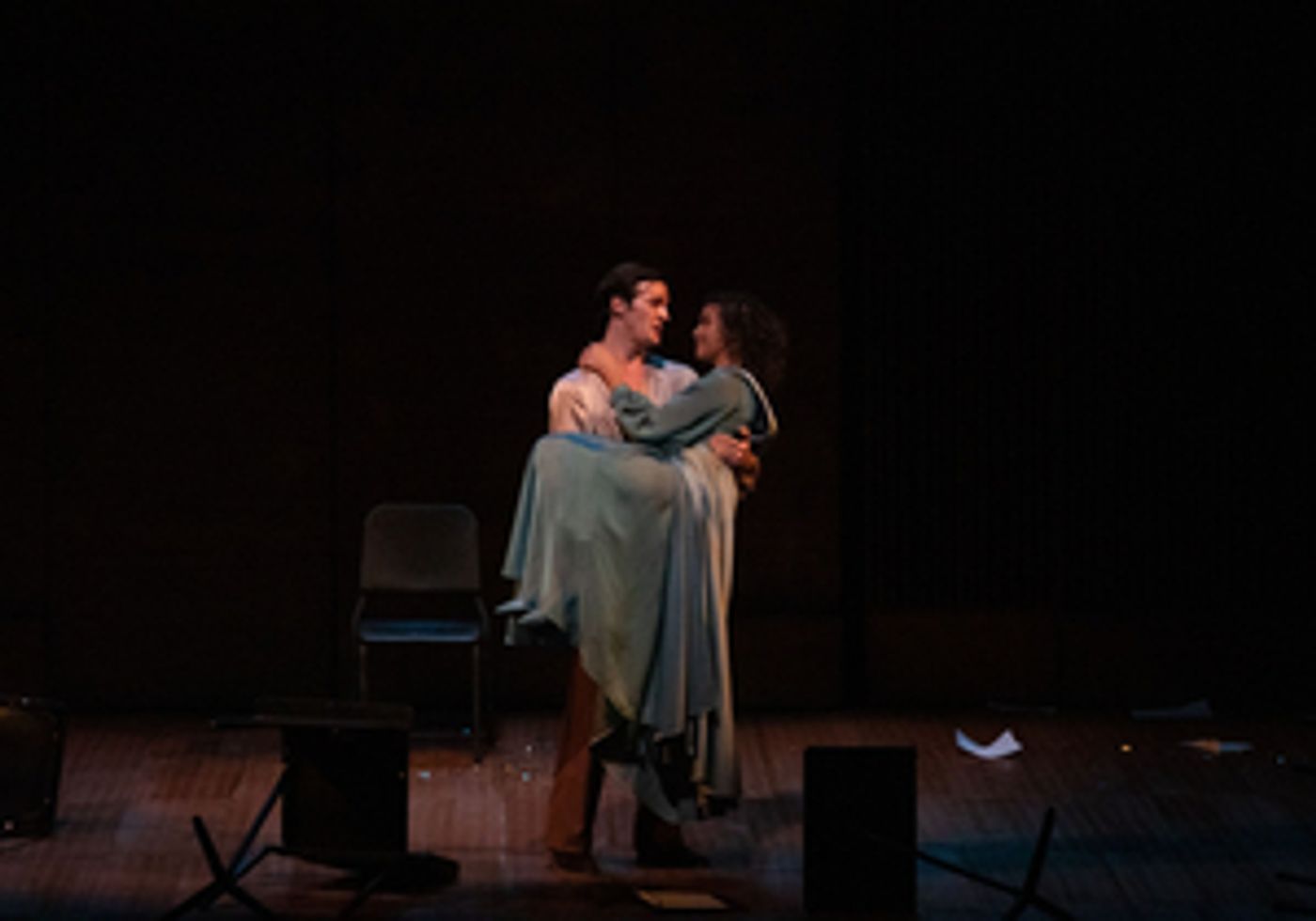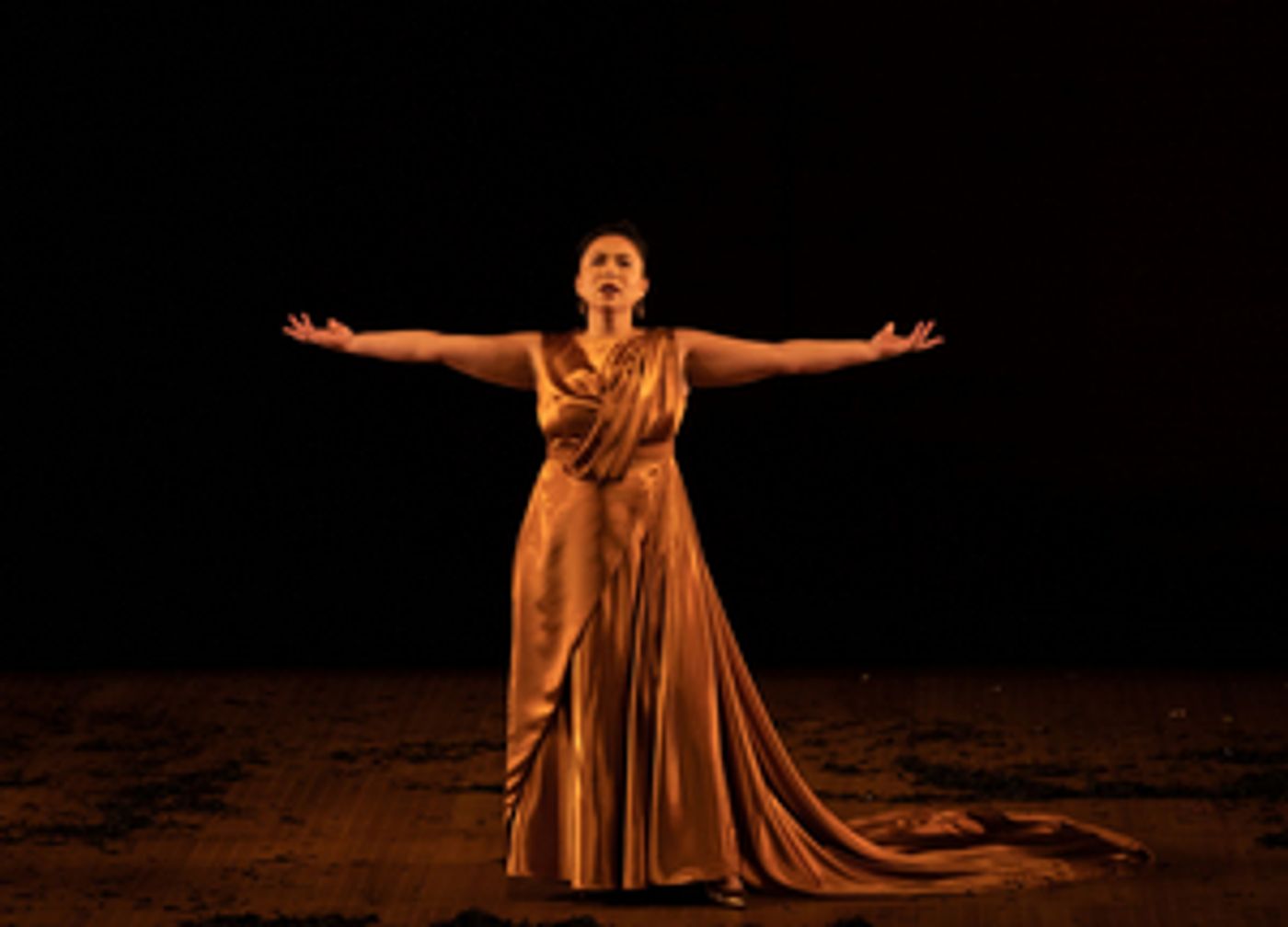Review: 'L'ORFEO' May Be the Title Role in Rossi's Opera but Euridice is the Star at Juilliard
Director Birnbaum Shows How Man Makes Plans and God Laughs in this 500-Year-Old Opera

(Euridice). Photo: Rosalie O'Connor
When Juilliard Opera and Juilliard415, the school's principal early instrument ensemble, gave what was billed as the New York staged premiere of Luigi Rossi's L'ORFEO last week, it made me think of the famed aria from the Gluck version of this story of Orpheus and Eurydice: "Che farò senza Euridice?"--"What will I do without Eurydice?"--because I felt like I was in the same boat.
Why? Because in this version of the story, she--certainly as portrayed with sweetness and vitality by soprano Julie Roset--Eurydice was the center of attraction. In fact, there were numerous other characters who were more interesting than Orfeo. Not that tenor Richard Pittsinger didn't do a fine job in the title role, with his pure voice (though I must admit that, for once, I really missed the sound of a countertenor) and sensitive acting, but the composer didn't seem very concerned with this character, except for his faux pas in turning to look at his beloved on the way out of Hades.
This version of the story seemed to have more humor in it than the Gluck telling, though I couldn't quite tell whether it all came from the composer and his librettist, Francesco Buti, or from conductor Avi Stein's performing edition--cutting the opera from about 6 hours to only 2½. (Thank you, sir.) Then there was the delightful (but fairly simple) production by director Mary Birnbaum that made the opera zip along briskly, with scenic designer Kristen Robinson and lighting designer Nicole Pearce adding much to the outing. (I was most taken with the clouds descending from the heavens and some awfully interesting costuming from Oana Botez.)
In her program notes, the director explores the idea that "destiny happens to you whether you like it or not, and no matter how much humans try to have control over their environment and future." Or, as the popular expression goes, "Man makes plans and God laughs."
But He/She isn't the only one laughing here. There were chuckles for the audience too (though there were plenty of tears as well), from the kind of stellar cast that we've come to expect from Juilliard's opera program. In Act I, I appreciated the pairing of Aristeo (the beguiling, large scale mezzo Xenia Puskarz Thomas), who is a woman in love with Eurydice in this version, and Satiro (the Satyr), the broad-ranging bass-baritone William Socolof (who also is Plutone/Pluto later in the opera). But his Satiro was something quite hilarious, particularly with the costuming hooves by Botez.

Photo: Rosalie O'Connor
The singing was, in general, of high quality but so was the acting. I was taken with the Amore of soprano Lydia Grace Graham, whose golden wings had her airborne with style and the vigorous fury and audaciousness of Deborah Love's Venere/Venus. Soprano Nicoletta Berry was a fine Giunone/Juno, whether prompting Proserpina's vengeance on her husband or tangling with Venere. And mezzo Karin Osbeck made a smart impression as Nutrice (the nurse), both vocally and in her stage craft.
Tenor Cesar Andres Parreño was a lively Momo, a great foil for Satiro, and bass-baritone Joseph Parrish a commanding Augure, who the nurse, Euridice and her father Endimione (the smart baritone Erik Grendahl) consult for a good omen on the wedding day of Orfeo and Euridice. Soprano Seonwoo Lee, mezzo Mary Beth Nelson and mezzo Jasmin White covered multiple roles (Graces, Fates, etc.) with great aplomb--a lively charming trio in the opera's opening, as they herald the war of the sexes.
You can count on Juilliard's opera productions--with the scintillating Juilliard415 early music band under conductor Stein--for great fun, lively singing and thoughtful performing. L'ORFEO this past week was no exception to the rule. It will be interesting to compare how this worthy piece from the 17h century holds up next to the new Matthew Aucoin-Sarah Ruhl EURYDICE next week at the Met. Tune in for more on that.
Reader Reviews
Videos

